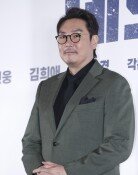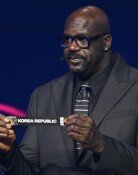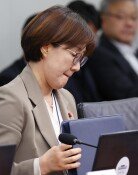Separation of Uranium Causes Ripples of Concern
Separation of Uranium Causes Ripples of Concern
Posted September. 03, 2004 21:57,
While major international press including the New York Times raised concerns over the separation experiments of uranium conducted by scientists of the Korea Atomic Energy Research Institute, claiming the experiments were part of nuclear weapon development, an official from the International Atomic Energy Agency (IAEA) reportedly visited the facility last year.
The disclosure caused major repercussions within and outside the country.
In the first quarter of last year, an individual from the IAEA wanted to visit the Korea Atomic Energy Research Institute and did so, following the required procedures. However, the visit had nothing to do with these experiments, said Cho Chung-won, the nuclear bureau chief of Koreas Ministry of Science and Technology on Friday.
Upon the report arguing that the institute rejected inspections that had been called for by the IAEA, the nuclear bureau chief refuted, That is not true. He further assured, Back then, the IAEA and the Science and Technology Ministry didnt know about these experiments. Seoul learned of them while drawing up its first report to the IAEA last June.
The uranium produced in the experiments carried out in early 2000 was only 0.2 grams. The separated uranium is confirmed to remain at the lab.
The New York Times online edition on September 3 reported, While the amount of uranium that South Korea has admitted to enriching was very small, about two-tenths of a gram, it was enriched to nearly 80 percent - a level so high that experts said it was difficult to imagine that it would be useful for anything other than making nuclear weapons.
The amount of uranium separated in this experiment is so minimal that it could hardly be used to develop nuclear bombs. I dont think it is proper to reveal the enrichment rate, said Cho.
There are not conflicting issues between Koreas nuclear experiments and nonproliferation obligations. We dont have any reason to suspect Korea, said U.S. State Department Spokesman Richard Boucher during a regular news briefing on Thursday.
I would say that South Korea has voluntarily reported this activity, and it will set a good example for future nuclear issues," he added.
However, Japans Chief Cabinet Secretary Hiroyuki Hosoda expressed his concern saying, The activity subject to the supervision of the IAEA was left out, which may have a negative influence on the six-party talks regarding North Koreas nuclear weapons.
Meanwhile, the Seoul government reportedly informed the six parties, including the United States, of the development that the experiment was conducted by a group of scientists on a laboratory scale, and Seoul had voluntarily reported the activity, which is now under IAEAs temporary inspection.
To clear up any suspicion that could be raised by the six parties, we need to come up with a thorough action plan. I know that the North has been informed of the same content, said a government official.
According to another government official, IAEA secretariats will orally report the issue to the IAEA Board of Governors since it is currently under investigation, and it seems that it will not be discussed in a plenary session to be held between September 20 and 24.






![교수와 제자들 창업했더니 260억 몰려… 세계 5곳만 가진 기술[허진석의 톡톡 스타트업]](https://dimg.donga.com/c/138/175/90/1/wps/NEWS/IMAGE/2025/12/05/132909952.4.jpg)
